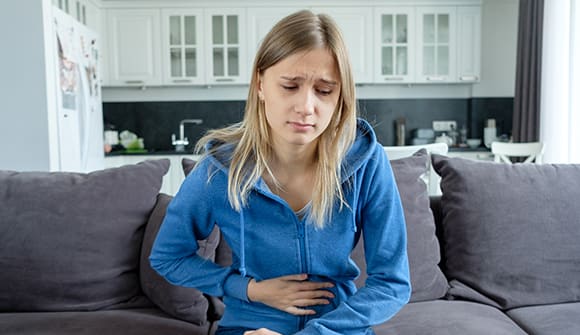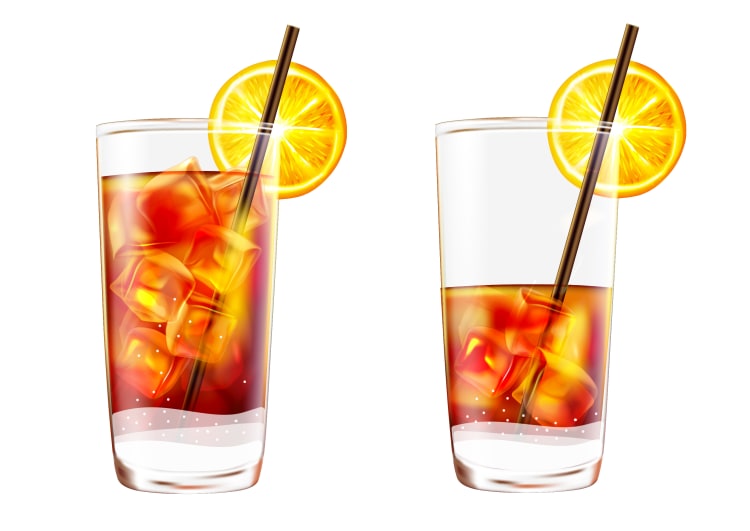Kidney stones in kids
Painful condition on the rise in children and teens.
Article Author: Juliette Allen
Article Date:

Here’s one more reason to pack an extra water bottle for your kids before the next trip to the beach or playground: New reports show kidney stones are on the rise in children and teens, and experts say dehydration is one of the biggest culprits.
“We’re seeing a significant rise in kidney stones picked up incidentally – on an X-ray or CT scan for something unrelated – as well as kids coming through Wolfson Children’s Emergency Centers actively passing stones,” said Andrew Stec, MD, chief of Pediatric Urology for Wolfson Children’s Hospital and chief of Urology and the Continence Clinic for Nemours Children’s Health Jacksonville. The largest increase, he noted, is among teen girls.
What causes kidney stones?
Dr. Stec explained that kidney stones are deposits of minerals that bind together forming a small rock instead of being diluted and coming out in the urine. Kidney stones can be as small as a grain of sand or as large as a golf ball.
Though kidney stones in children are sometimes caused by a metabolic disorder (which interferes with the body’s ability to break down food) or another underlying medical condition, the majority are the result of two things: high sodium intake and dehydration.
According to Dr. Stec, the process of stones forming in the urine is similar to when a person puts too much sugar in tea. If you use too much sugar (salt intake) or not enough water (dehydration), then the sugar settles out to the bottom of your glass (stones forming).
“Your body either doesn’t have enough water to dilute the naturally occurring minerals in the urine, or you’re ingesting so many that they can’t all be dissolved, and they end up settling out like sugar on the bottom of your glass,” he explained.

The formation of kidney stones is similar to making a glass of sweet tea: If there's too much sugar or too little water, excess sugar settles on the bottom of the glass.
Kidney stones are more common in the South (aptly known as the “Stone Belt”) and during the summer because people often don’t drink enough water to keep up with the hot temperatures. Additionally, children (and adults) are eating more processed foods and drinks than in the past, which means salt intake is soaring.
“As the kidney gets rid of salt, it also lets a little calcium out,” Dr. Stec said. “So, we have all of this extra calcium in the urine because people eat and drink excessive amounts of salt. The calcium forms together into calcium stones, one of the most common things we see.”
Urgent or emergency?
As uncomfortable as kidney stones sound, they only cause pain while actively passing between the kidney and the bladder, according to Dr. Stec. A stone sitting in the kidney may not cause pain unless it’s blocking urine from flowing, which is how some stones grow with the child being aware of them.
Symptoms of a passing stone include:
- Pain in the lower back, abdomen or groin
- Blood in the urine
- Nausea
- Vomiting
Dr. Stec said parents should bring their child to the nearest Emergency Center if he or she is in severe pain and exhibiting the symptoms above. If a child has mild symptoms and is otherwise acting normal, a call to the pediatrician is a good place to start for a urine screening and possibly an ultrasound.
Although larger stones usually need to be surgically removed, doctors can give medications to make children more comfortable as they naturally pass smaller stones.
“My biggest message is this: hydrate, hydrate, hydrate. Kids and teens may not remember to do it on their own so it’s important for parents to make sure their children and drinking enough water, especially when it’s hot out,” Dr. Stec said.
If your child is experiencing severe symptoms that could indicate a kidney stone, take him or her to the nearest Children’s Emergency Center immediately. For less severe symptoms, a pediatrician can assess your child and recommend next steps. To find the right pediatrician for your family, call 904.202.4YOU (4968) or fill out the appointment request form.



